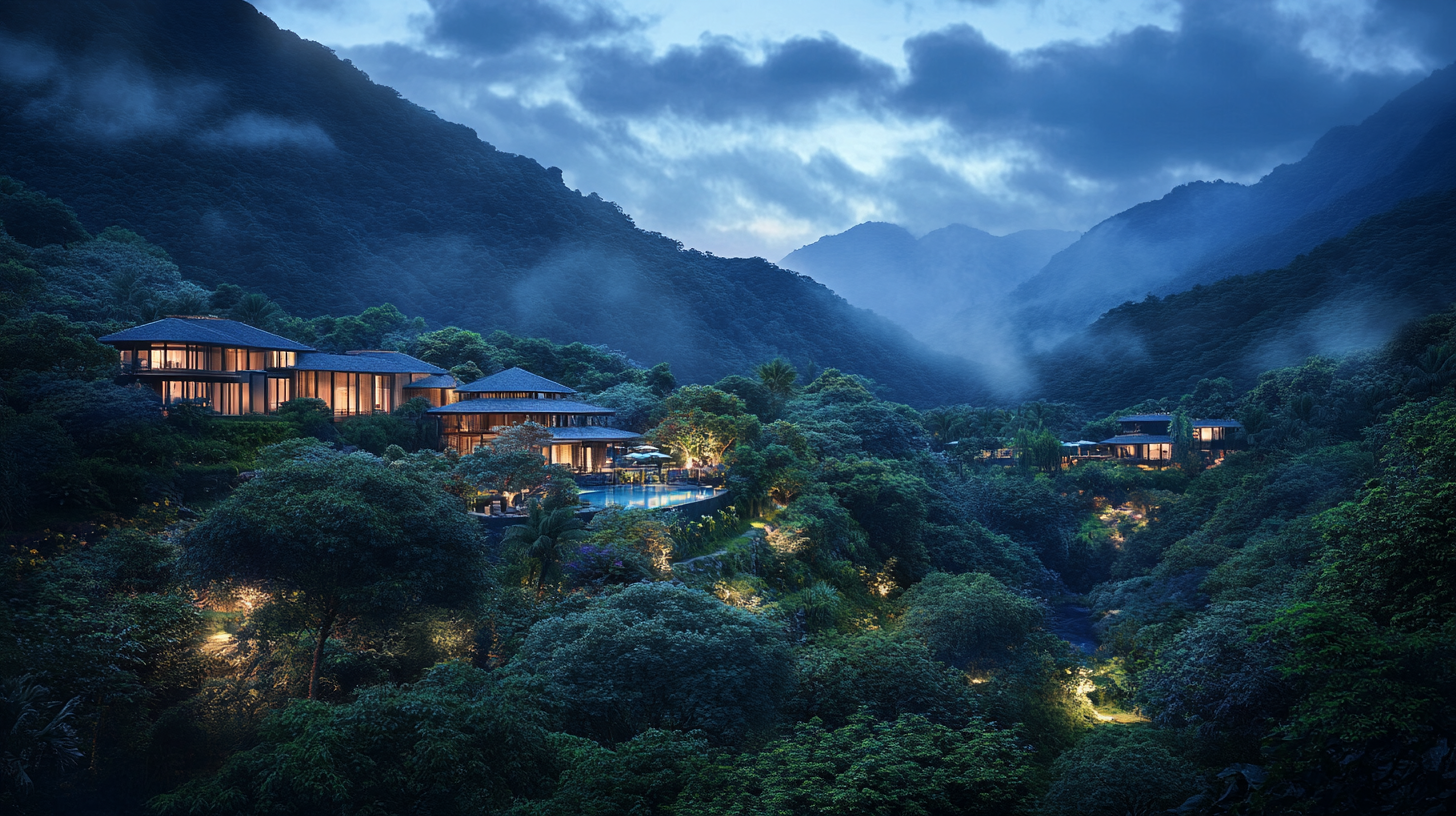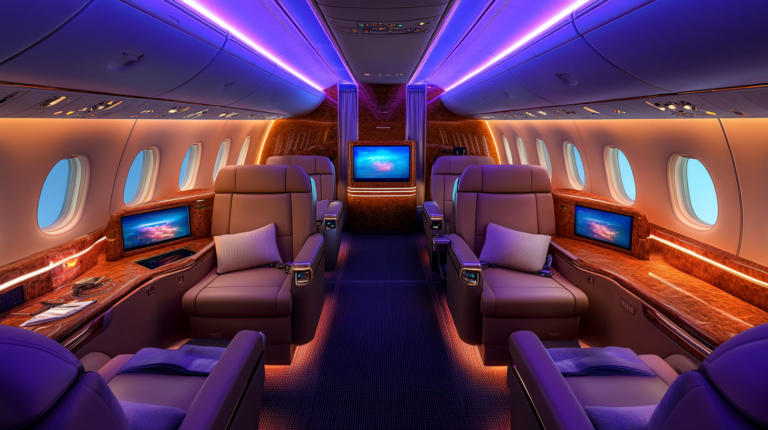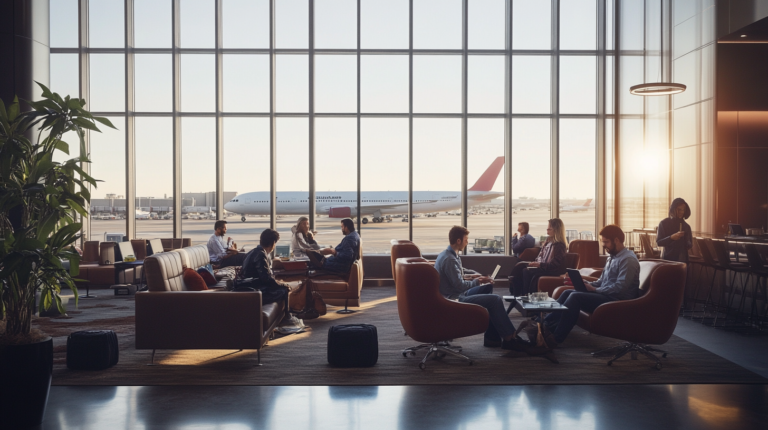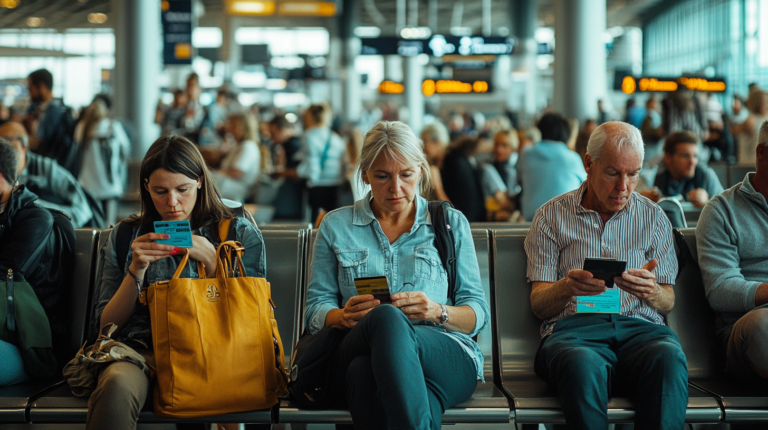Sleep Tourism: The Growing Interest in Travel Focused on Rest and Rejuvenation
In today’s fast-paced world, where the pressures of daily life often lead to chronic stress and burnout, a new travel trend has emerged to offer respite: sleep tourism. This burgeoning sector of the global wellness industry does more than just provide a place to rest; it prioritizes deep rejuvenation and holistic well-being over traditional adventure or sightseeing. By focusing on restorative sleep, sleep tourism offers the sleep-deprived an invaluable opportunity to reset their minds and bodies, fostering a renewed sense of health and vitality. The Importance of Quality Sleep in Modern Life
The Rise of Sleep Tourism
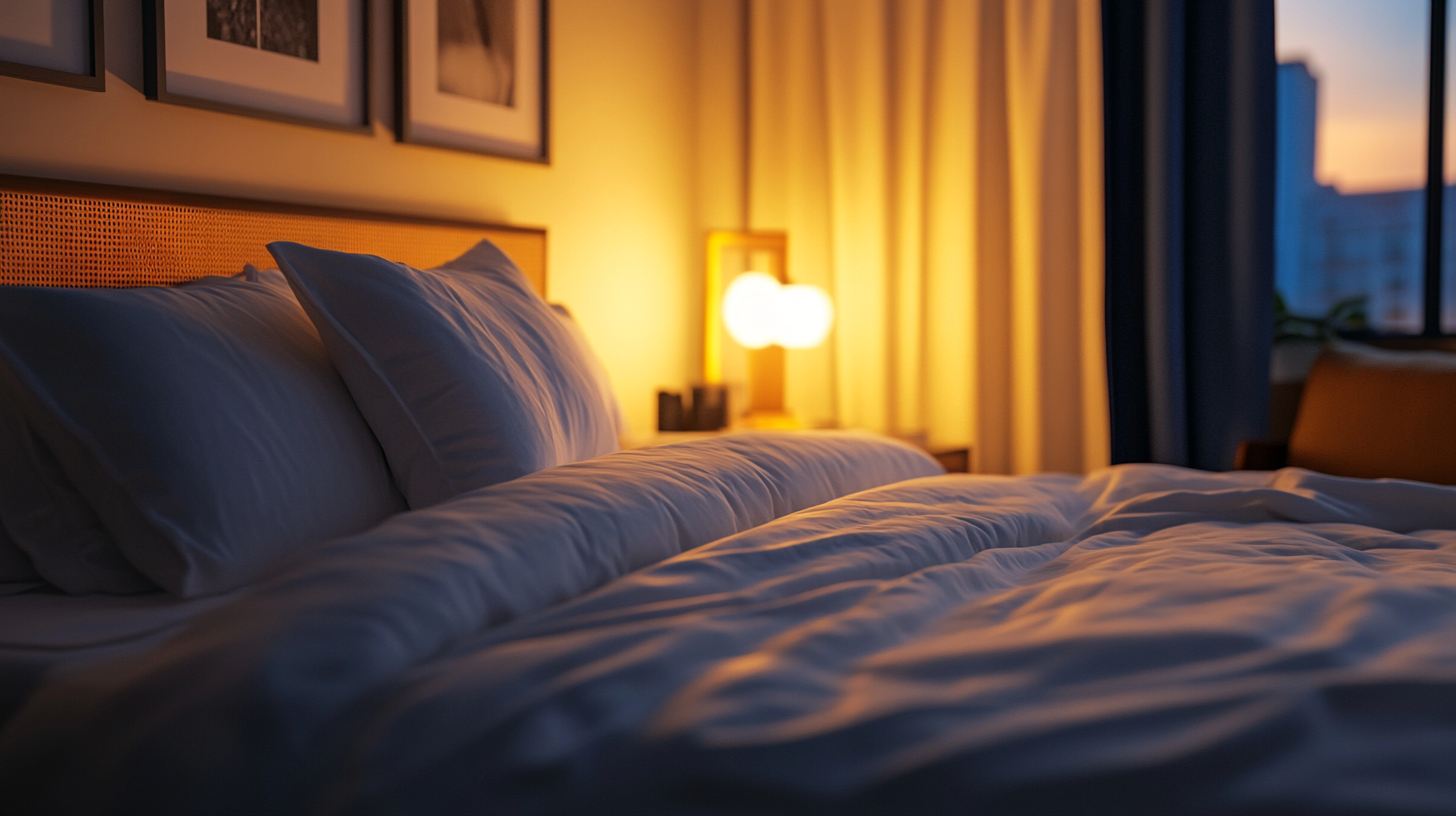
Since the 2020 pandemic reshaped daily life, there has been a significant shift in how people perceive and prioritize self-care and sleep. The unprecedented levels of anxiety and uncertainty have contributed to widespread sleep disturbances, with many struggling to maintain healthy sleep patterns amidst changing work environments and increased screen time. As mental health concerns rise globally, a substantial number of individuals are experiencing poor sleep quality, leading to adverse effects on their physical health, emotional well-being, and cognitive functioning. Reports indicate that around 35% of people get less than seven hours of sleep per night, falling short of the recommended amount for optimal health. Moreover, an estimated 50–70 million U.S. adults suffer from sleep disorders like insomnia, underscoring the pervasive nature of sleep-related issues. The Global Sleep Crisis Post-Pandemic
Recognizing the pivotal role of sleep in overall health, travelers are increasingly seeking vacations intentionally designed to improve sleep quality. Rather than packing itineraries with endless activities, these travelers prioritize destinations that offer tranquility and restorative experiences. This trend, known as sleep tourism, is projected to be a major focus by 2025, signaling a significant shift in the travel industry. It reflects society’s growing embrace of sleep not just as a necessity, but as the ultimate luxury experience—a precious commodity in an age of constant connectivity and overstimulation. The Evolution of Wellness Travel
What Is Sleep Tourism?
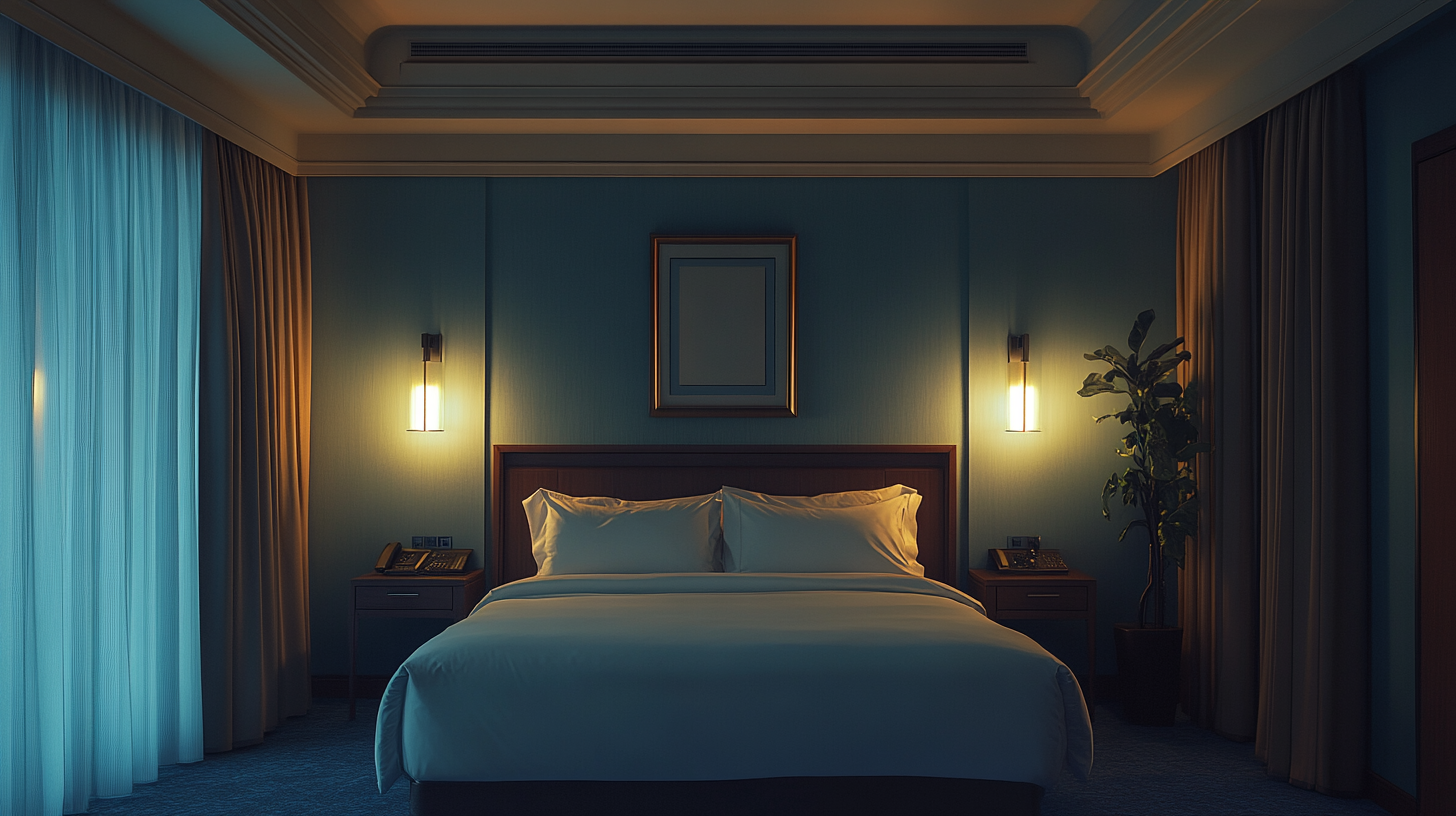
Sleep tourism focuses on providing guests with restorative sleep through specialized programs and meticulously designed environments. It merges traditional tourism with wellness retreats, offering accommodations specifically tailored for optimal rest. The concept encompasses a variety of experiences, ranging from luxury resorts equipped with advanced sleep technologies—such as AI-powered beds and sleep monitoring systems—to serene retreats in natural settings that provide holistic wellness programs aimed at calming the mind and body. These destinations often incorporate elements such as personalized sleep consultations, therapies to address sleep disorders, and environments free from common sleep disruptors. By dedicating resources to enhance sleep quality, sleep tourism seeks to offer travelers a transformative experience that extends beyond mere rest, promoting long-term well-being and rejuvenation. Innovative Sleep Programs in Travel
Global Destinations Embracing Sleep Tourism
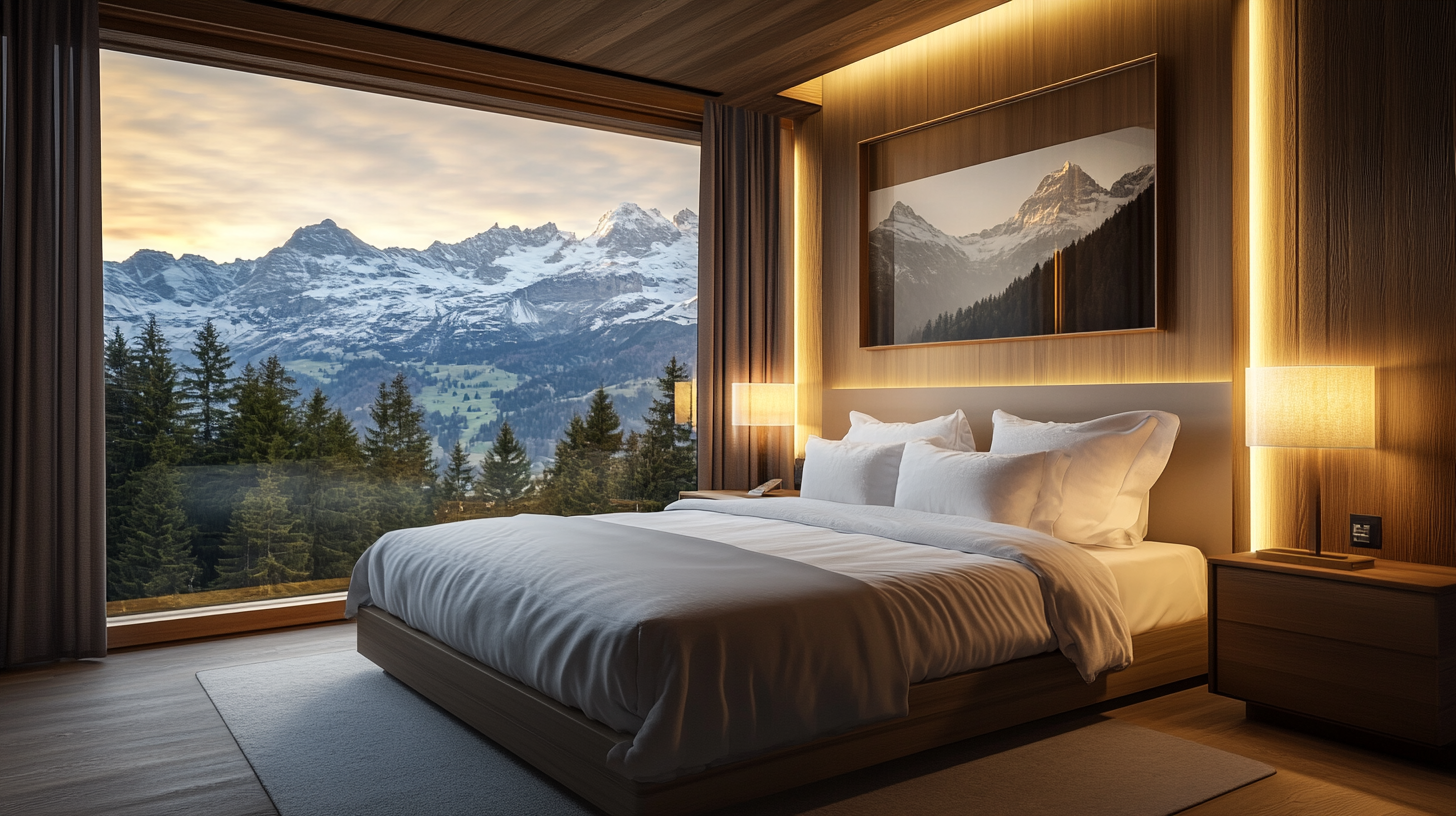
Hotels and resorts worldwide are adapting to this trend by integrating sleep-focused amenities and services into their offerings:
- Park Hyatt, New York: Features the Bryte Restorative Sleep Suite, equipped with a smart bed that adjusts to the guest’s biometric data for personalized comfort. The suite offers a sanctuary designed to minimize disturbances, promoting a deeper and more restorative sleep experience. Bryte Restorative Sleep Suite at Park Hyatt
- Cadogan, London: Offers personalized sleep services by hypnotherapist Malminder Gill, including hypnosis and meditation sessions aimed at improving sleep patterns. Guests can partake in bespoke programs that address stress and anxiety, providing tools to achieve better sleep even after their stay. Personalized Sleep Therapy at Cadogan
- Six Senses Resorts: Provides sleep programs incorporating Traditional Chinese Medicine, Ayurveda, and wellness practices like yoga and meditation across various locations. These programs are designed to align the body’s natural rhythms, using holistic approaches to enhance sleep quality and overall health. Holistic Sleep Programs at Six Senses
- Hästens Sleep Spa Hotel, Coimbra, Portugal: Emphasizes sleep quality with meticulously designed rooms featuring handcrafted beds and a focus on creating a sleep-conducive environment. The hotel’s dedication to artisanal craftsmanship highlights the importance of physical comfort in achieving restful sleep. Hästens Sleep Spa Experience
- Aman New York: Offers comprehensive wellness consultations and sleep programs, highlighting the integration of luxury accommodations with health-focused services. Guests can engage in tailored treatments that address individual sleep concerns, blending modern science with traditional practices. Wellness and Sleep at Aman New York
Innovative Sleep-Enhancing Amenities
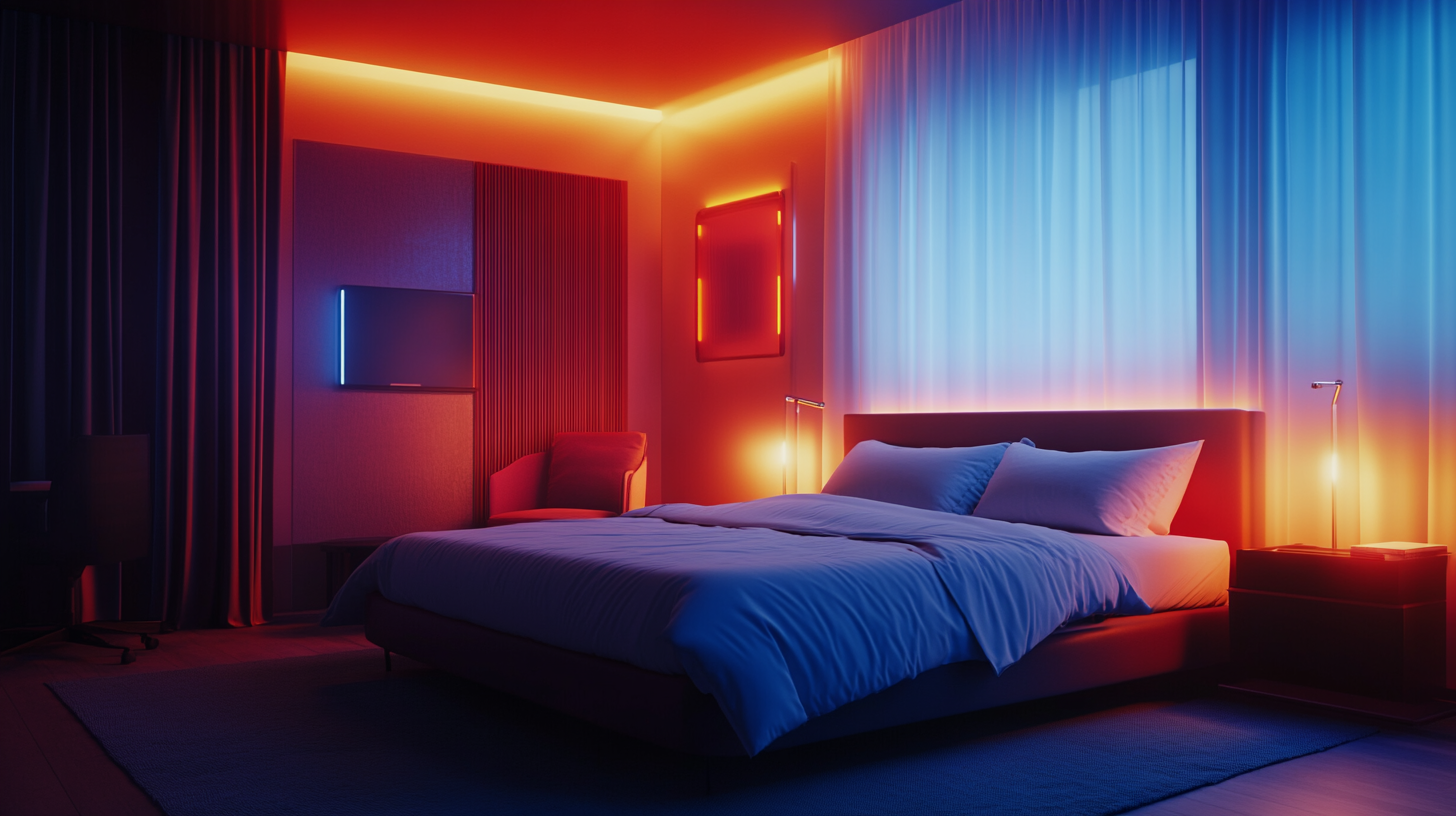
Properties are going beyond traditional comfort bedding to create comprehensive sleep ecosystems. Amenities include:
- Smart Beds and Sleep Technology: AI-powered mattresses and sleep trackers that monitor and adjust to individual sleep patterns, providing real-time data and personalized adjustments for optimal sleep conditions. Advancements in Sleep Technology for Travelers
- Soundproof Rooms and Blackout Curtains: Designed to eliminate external disturbances such as noise and light pollution, these features create an environment conducive to uninterrupted sleep, crucial for restorative rest. Designing the Perfect Sleep Environment
- Pillow Menus and Aromatherapy: Offering a selection of pillows with varying firmness and materials, along with calming scents like lavender and chamomile, to cater to personal preferences and enhance relaxation. Personalized Comfort Options in Luxury Hotels
- Digital Detox Environments: Encouraging guests to disconnect from technology by removing electronic devices from rooms or providing lockable storage, reducing distractions and the impact of blue light exposure on sleep quality. The Benefits of Digital Detox on Sleep
- Sleep Coaches and Therapists: Providing expert consultations to address sleep issues, offering techniques such as cognitive behavioral therapy, mindfulness, and stress management strategies to improve sleep habits. Role of Sleep Professionals in Hospitality
Expert Insights on Sleep Tourism
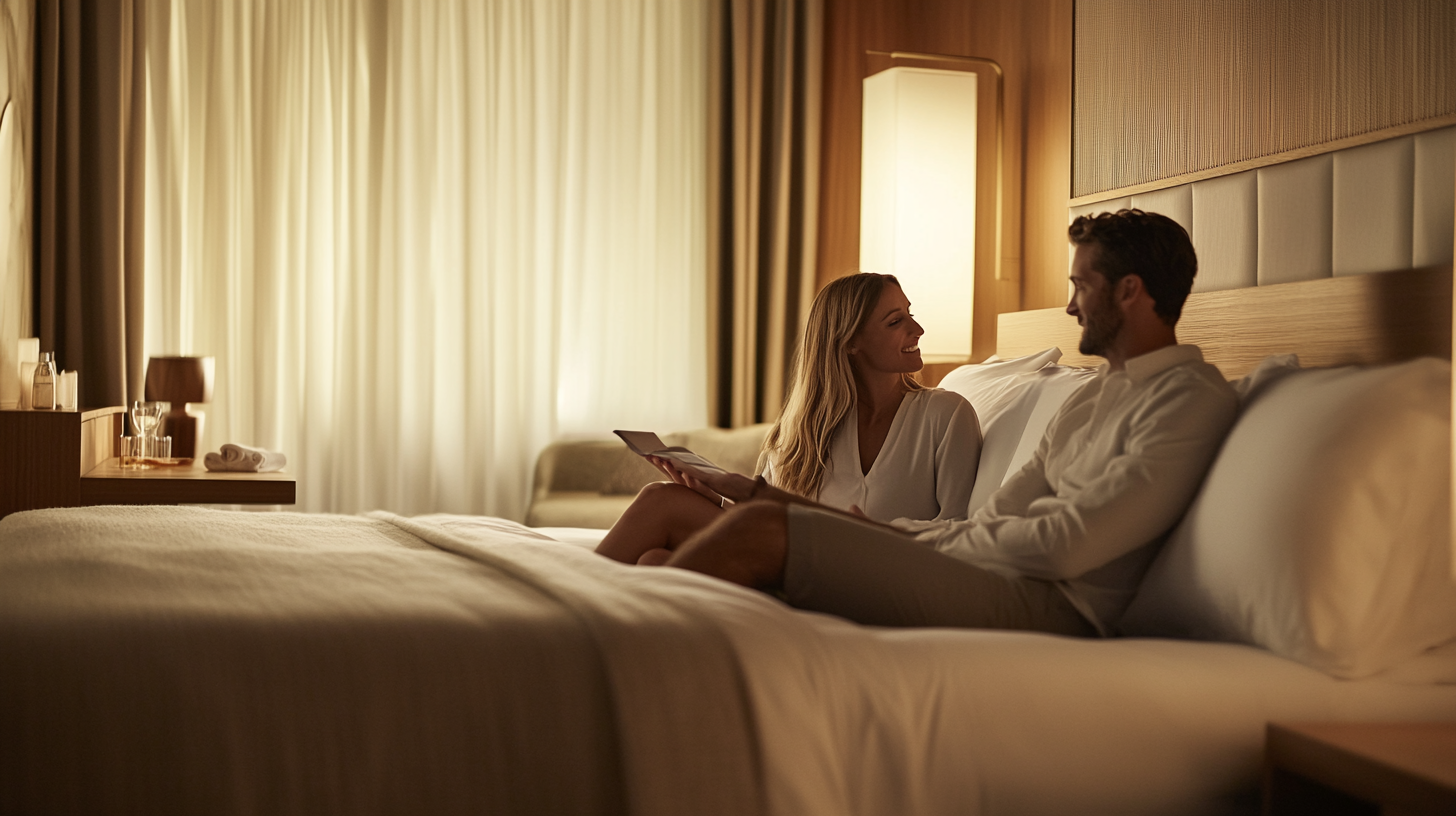
Sleep experts emphasize the benefits of travel experiences centered on healthy sleep strategies. According to Dr. Robbins, a renowned sleep specialist, “Immersive sleep-focused holidays can help travelers address sleep difficulties, though long-term solutions should be sought at home.” She suggests that while these vacations can serve as a catalyst for better sleep practices, individuals should integrate learned techniques into their daily routines for sustained benefits. Expert Opinions on Sleep-Focused Travel
Hypnotherapist Malminder Gill, who offers services at the Cadogan in London, notes that personalized sleep programs can significantly improve sleep patterns by addressing underlying stress and anxiety. “By tailoring the approach to each individual’s needs, we can effectively target the root causes of their sleep disturbances,” she explains. Personalized Sleep Therapies and Their Impact
Sleep Tourism in Nature’s Embrace

Beyond luxury hotels, sleep tourism also embraces natural settings that foster relaxation and rest:
- Tasmania, Australia: Offers dark-sky experiences ideal for stargazing, promoting a sense of tranquility conducive to sleep. The absence of light pollution not only enhances the visibility of celestial displays but also regulates circadian rhythms by honoring natural light cycles. Stargazing Retreats in Tasmania
- The Swiss Alps: Home to retreats that combine medical advancements with holistic practices to combat sleep deprivation amidst breathtaking landscapes. The high-altitude environment and clean air contribute to improved sleep quality, while programs often include activities like mountain yoga and alpine therapies. Holistic Sleep Retreats in the Swiss Alps
- Castle Hot Springs, Arizona: Utilizes natural hot springs rich in sleep-promoting minerals, reflecting ancient practices for relaxation and health. Soaking in these waters can ease muscle tension and promote deeper sleep, integrating nature’s remedies into the sleep tourism experience. Benefits of Mineral Hot Springs on Sleep
The Wellness Tourism Boom
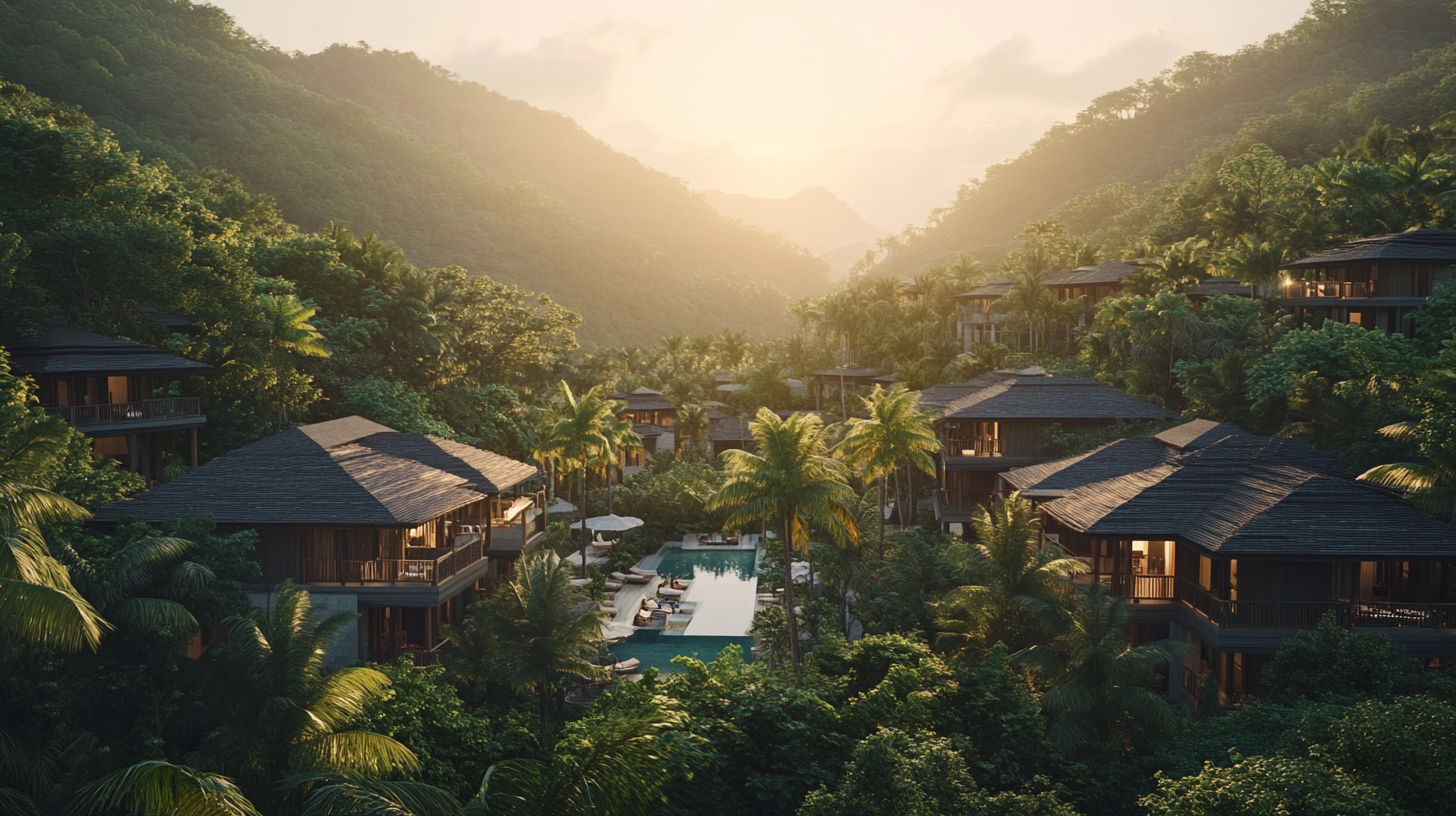
Sleep tourism is a significant part of the broader wellness tourism industry, which is expected to reach a value of $1.3 trillion by 2025. Travelers are increasingly seeking experiences that prioritize mental, physical, and emotional health. This surge reflects a global movement towards self-care and preventive health measures, recognizing the importance of balance in an often hectic world. Growth Trends in Wellness Tourism
Destinations like The Farm at San Benito in the Philippines exemplify this trend, offering medically supervised, personalized retreats that integrate traditional and advanced medical practices. Guests can engage in programs that address sleep issues through detoxification, stress reduction, and nutritional support, highlighting the interconnectedness of overall health and sleep. Integrated Wellness Programs at The Farm
Creating a Sleep Retreat at Home
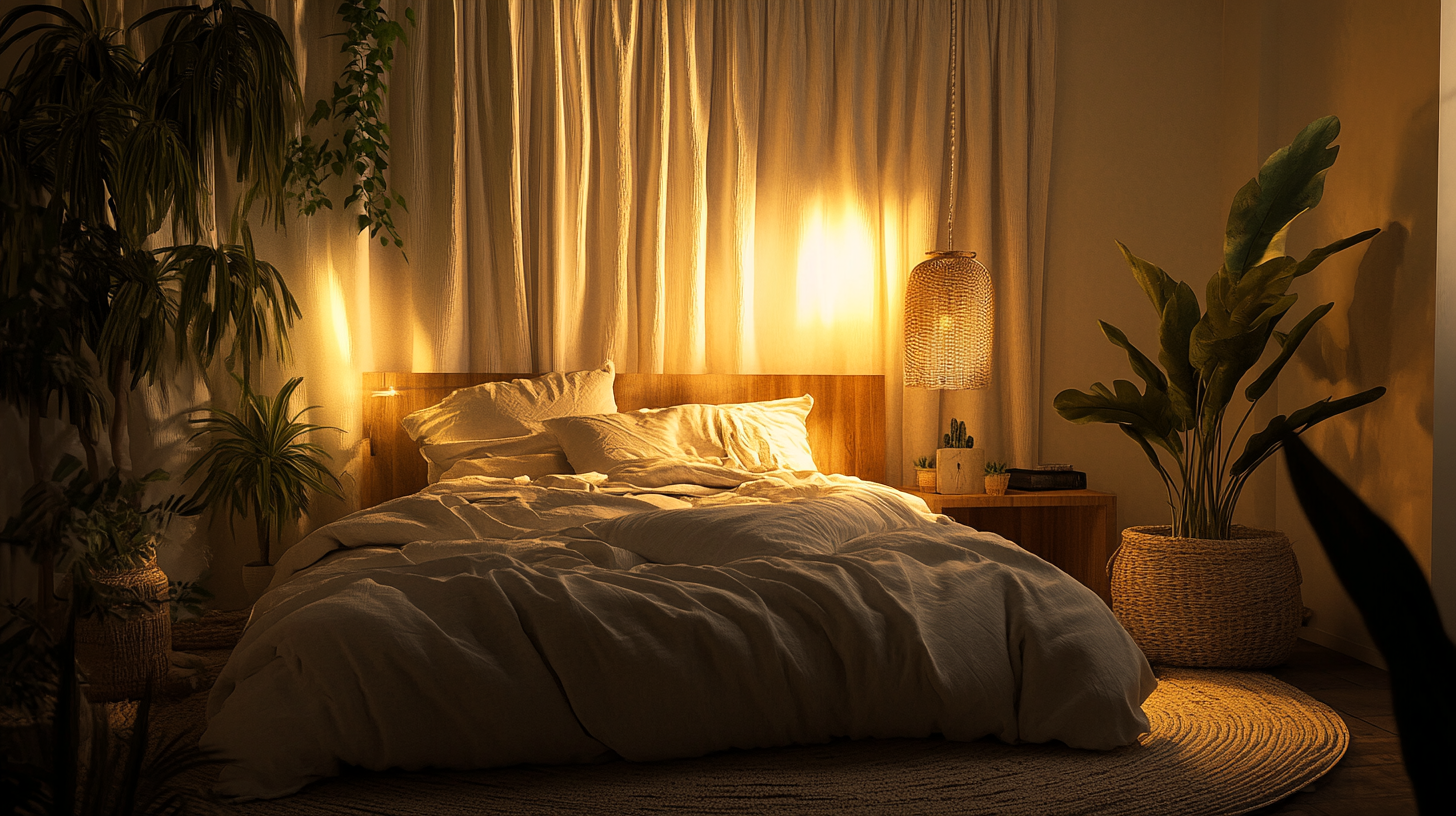
While travel can provide an immersive sleep-enhancing experience, similar benefits can be achieved by creating a sleep retreat at home:
- Upgrade Your Sleep Environment: Invest in quality bedding, such as mattresses that support proper spinal alignment and breathable linens that regulate temperature. Incorporate blackout curtains and soundproofing measures to mimic the undisturbed conditions of luxury accommodations. Transforming Your Bedroom Into a Sleep Haven
- Schedule Downtime: Allocate time for relaxation activities such as meditation, yoga, or reading before bedtime. Establishing a pre-sleep routine can signal to the body that it’s time to wind down, promoting a smoother transition to sleep. The Power of Bedtime Rituals
- Digital Detox: Limit screen time before sleep to reduce exposure to blue light, which can disrupt sleep patterns. Consider implementing device-free zones in the bedroom or using applications that filter blue light during evening hours. Managing Technology Use for Better Sleep
The Future of Sleep Tourism

As awareness of sleep’s vital role in health continues to grow, sleep tourism is poised to expand. Hotels are investing in technologies and therapies to cater to this demand, recognizing that travelers are prioritizing rest over packed itineraries. The industry is expected to see innovations that further personalize the sleep experience, such as customizable room environments controlled via smart devices and collaborations with sleep scientists to develop evidence-based programs. Emerging Trends in Sleep-Focused Travel
This trend reflects a shift in societal values, with sleep no longer seen merely as a necessity but as a luxury and essential component of well-being. Sleep tourism offers a promising avenue for individuals to recharge and improve their sleep health, both on vacation and beyond. It emphasizes the notion that investing in rest is investing in one’s overall quality of life. The Changing Perception of Sleep in Society
Final Thoughts
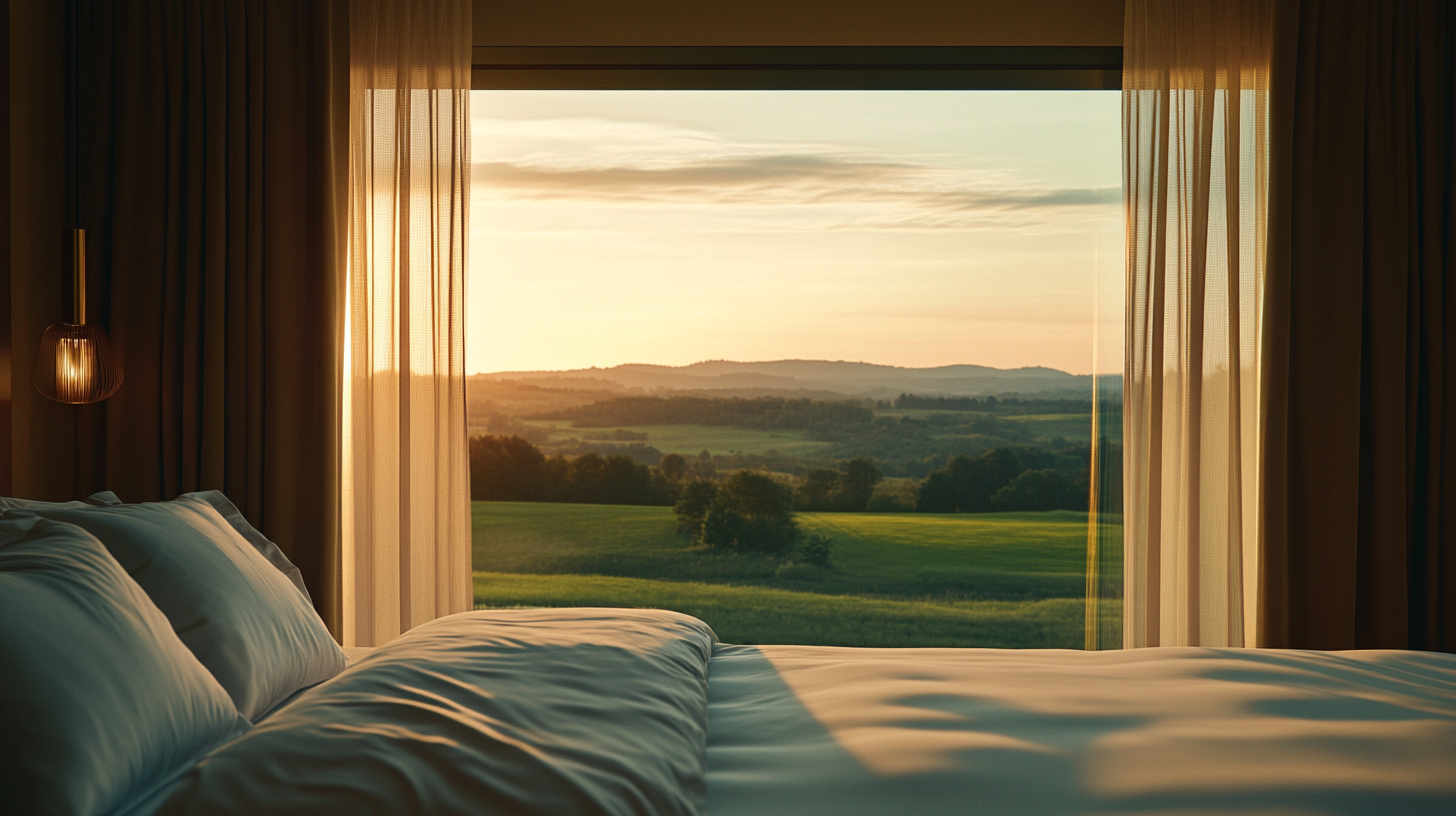
Sleep tourism represents a new frontier in travel, aligning with the growing emphasis on wellness and self-care. By providing tailored experiences that prioritize rest and rejuvenation, it offers a valuable solution to the pervasive issue of sleep deprivation. This movement not only caters to those seeking relief from sleep-related issues but also promotes a cultural shift towards valuing rest as a fundamental aspect of health. Sleep Tourism as a Solution to Modern Stress
Whether through luxurious accommodations with advanced sleep technologies or serene retreats immersed in nature, sleep tourism invites travelers to embrace rest as an integral part of their journey toward holistic health. As the industry evolves, it holds the potential to redefine how society approaches travel and wellness, making restorative sleep a cornerstone of the travel experience. The Future Impact of Sleep Tourism on Travel
Follow us back to milesBUZZ for more insights and updates on the latest travel trends.

